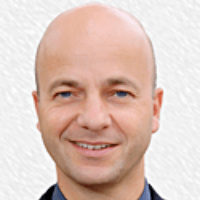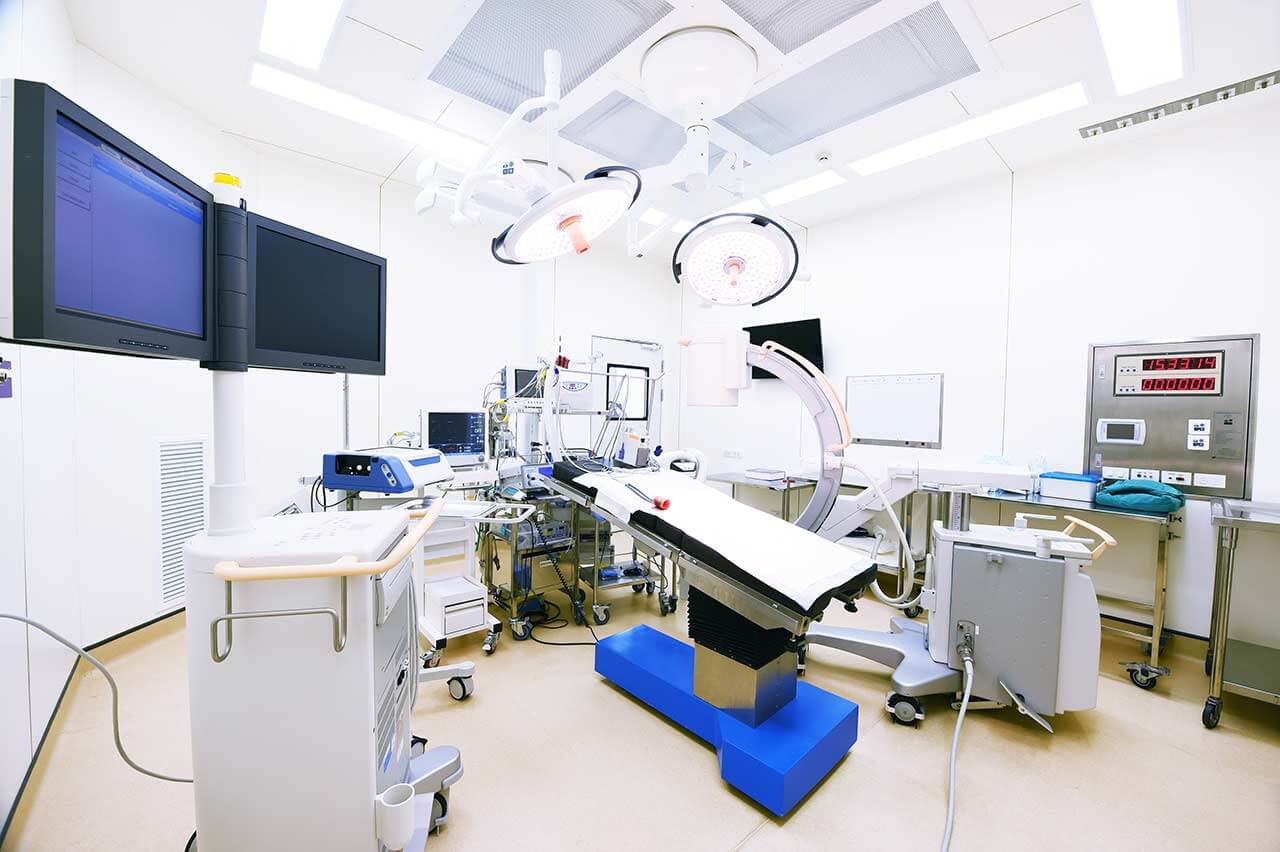
The program includes:
- Initial presentation in the clinic
- clinical history taking
- review of medical records
- physical examination
- laboratory tests:
- complete blood count
- biochemical blood analysis
- inflammation indicators (CRP, ESR)
- alpha-1-antitrypsin
- x-ray and bronchography
- electrocardiogram (ECG)
- high-resolution computed tomography (HRCT)
- collected three sputum samples
- pulmonary function test
- blood gas analysis
- bronchoscopy with biopsy
- histological and microbiological examination
- bronchial lavage
- nursing services
- development of individual treatment plan
Required documents
- Medical records
- Chest X-ray, MRI/CT scan (if available)
Service
You may also book:
 BookingHealth Price from:
BookingHealth Price from:
About the department
According to the Focus magazine, the Department of Cardiology, Angiology and Pulmonology at the University Hospital Bonn ranks among the top German national hospitals in 2018. The department offers the full range of diagnostics and treatment of all diseases of the cardiovascular system, lungs and bronchi, as well as veins and arteries, both on an outpatient and inpatient basis. The department specializes in the treatment of coronary heart disease, heart valve diseases, heart arrhythmias, congenital and acquired heart defects, as well as of inflammatory cardiovascular diseases. The Chief Physician of the department is Prof. Dr. med. Georg Nickenig.
In the field of cardiology, the department offers all the diagnostic and therapeutic methods of conservative and interventional treatment. These include the very latest non-invasive methods for diagnosing ischemic disease and heart valve disease (for example, 3D ultrasound, stress tests), as well as heart failure. The department is a recognized center for the treatment using defibrillators and resynchronization therapy in patients with severe heart failure. The department also offers certified treatment of hypertension (certificate of the German Hypertension League). In addition, it offers all the interventional treatment methods for aortic, mitral, tricuspid and pulmonary artery valves. Another department’s priority is the treatment of combined coronary pathologies.
Within the framework of electrophysiology and arrhythmology, there are treated all congenital and acquired heart rhythm disorders. In addition to drug treatment, the department's specialists have at their disposal all common and innovative methods of invasive diagnostics and ablation in cardiac arrhythmias. These also include invasive ablation therapy of the left atrium and ventricles using transseptal and epicardial approaches. In addition, the Cardiac Catheterization Laboratory serves to perform the operations to implant pacemakers and defibrillators for the treatment of bradycardic and tachycardic heart rhythm disorders.
The department's angiologists offer the very latest diagnostics of vascular diseases. In addition, the innovative medical and interventional methods are used for the treatment of all angiologic pathologies (in particular for the treatment of occluded peripheral arteries and veins). In addition to the classic balloon dilatation and stenting, as well as the use of drug-coated cylinders and stents, the department successfully uses such methods as rotational thrombectomy, atherectomy, aspiration thrombectomy, thrombolytic therapy using a cutting balloon, etc.
The department has an impeccable reputation in the diagnostics/treatment of all benign and malignant lung diseases. The modern laboratories for functional diagnostics of the lungs, sleep and bronchoscopy offer all modern methods. The department has in its arsenal the interventional techniques and innovative methods of drug therapy for the treatment of COPD/emphysema, bronchial asthma, lung cancer, infectious lung diseases, sleep disorders, pulmonary hypertension, interstitial and other rare lung diseases. The special focus was made on the interdisciplinary and multimodal treatment of lung cancer, which is carried out in collaboration with the Departments of Thoracic Surgery, Radiology, Oncology, Radiation Therapy, etc.
With the highly qualified specialists with the advanced experience in the treatment of all diseases in the fields of its specialization, as well as the very latest medical technology and treatment concepts, the department provides medical care of the highest quality and deservedly belongs to the leading centers in Germany.
The diagnostic and therapeutic range of the department includes the following options:
- Diagnostics and treatment of hypertension
- Diagnostics and treatment of pulmonary heart and pulmonary circulation disorders
- Diagnostics and treatment of all diseases of the respiratory tract, lungs and bronchi
- Diseases of the bronchi (COPD, bronchial asthma, pulmonary emphysema, etc.)
- Lung tumors (lung cancer, pleural mesothelioma)
- Pulmonary fibrosis and other interstitial lung diseases (for example, sarcoidosis, exogenous allergic alveolitis, lung lesions due to the rheumatic/diffuse diseases of the connective tissue)
- Infectious lung diseases (for example, pneumonia)
- Pleural and mediastinal diseases
- Pulmonary hypertension
- Pulmonary embolism
- Rare lung diseases
- Preparation and monitoring after lung transplantation
- Somnology (obstructive and central sleep apnea) and respiratory medicine
- Diagnostics and treatment of heart rhythm disorders
- Diagnostics and treatment of coronary heart disease
- Diagnostics and treatment of congenital and acquired heart defects
- Diagnostics and treatment of other types of heart disease
- Operations for the installation/revision of defibrillators and pacemakers
- Diagnostics and treatment of arterial, venous and lymphatic vascular diseases (angiology)
- Diagnostics and treatment of diseases of the arteries, arterioles and capillaries
- Endovascular minimally invasive therapy using percutaneous transluminal angioplasty or stent implantation
- Catheter atherectomy
- Rotational atherectomy
- Special balloon techniques
- Locoregional lysis therapy
- Aspiration thrombectomy
- Diagnostics and treatment of venous diseases and related complications
- Treatment of thrombosis and long-term complications
- Diagnostics and treatment of chronic venous insufficiency, vein hardening
- Endovascular therapy in deep vein thrombosis of the lower limbs
- Wound handling/treatment
- Diagnostics and treatment of diseases of the veins, lymph vessels and lymph nodes
- Conservative treatment of arterial diseases
- Diagnostics and treatment of diseases of the arteries, arterioles and capillaries
- Electrophysiology
- Intensive care
- Diagnostics and treatment of other diseases
Curriculum vitae
- 1983 - 1989 Study of Medicine at the Rhenish Friedrich Wilhelm University of Bonn.
- 1990 Doctoral thesis defense.
- 1990 - 1995 Assistant Physician / Research Assistant at the University Hospital Bonn.
- 1993 - 1994 Research Grant of the German Research Foundation, Emory University Medical School, Department of Cardiology / Pharmacology, Atlanta, USA.
- 1996 - 2000 Medical Assistant / Research Assistant at the Department of Internal Medicine III, University of Cologne.
- 1998 Board certification in Internal Medicine.
- 2000 Board certification in Cardiology.
- 2000 Habilitation.
- 2000 - 2005 Head of the Department of Internal Medicine III, University Hospital Saarland.
- 2005 Additional qualification in Intensive Care.
- Since 10/2005 Chair of Internal Medicine, Cardiology; Chief Physician of the Department of Cardiology, Angiology and Pulmonology at the University Hospital Bonn.
Research Awards
- 1996 Oskar Lapp Prize of the German Society of Cardiology.
- 1996 H. u. G. Meise Prize of the German Society for Rehabilitation and Prevention Medicine.
- 1996 Prevention Award of the Deutsche Herzhilfe e.V.
- 1997 Dieter Klaus Award for Hypertension Research.
- 1997 Research Award of the German Heart Foundation.
- 1999 Young Investigator Award of the European Vascular Biology Society.
- 1999 Irbesartan Research Award.
- 2001 Novartis Award for Therapeutic Relevant Pharmacological Research.
- 2001 Theodor Frerichs Prize of the German Society of Internal Medicine.
- 2004 Albert Fraenkel Prize of the German Cardiac Society.
Memberships in Professional Societies
- German Society of Cardiology, Heart and Circulation Research.
- German Society of Internal Medicine.
- European Society of Cardiology.
- American Heart Association.
Photo of the doctor: (c) Universitätsklinikum Bonn
About hospital
According to the authoritative Focus magazine, the University Hospital Bonn ranks among the top ten medical facilities in Germany!
The hospital was opened on January 1, 2001, although in fact it inherits the medical facility, which operated at the Faculty of Medicine of the University of Bonn. The hospital in Germany combines all the highest standards of modern university medicine of the international level. A highly competent team of experienced physicians, which consists of more than 8,000 employees from various fields, takes care of the patients’ health.
The hospital has 32 specialized departments and 23 institutes, which implement the highest standards of treatment in Germany. On their basis, in addition to the successful clinical activities, the productive research and training of young specialists are carried out. Also, the hospital has 10 intensive care units and more than 30 cutting-edge operating rooms. They are equipped with the advanced surgical, navigation and monitoring systems, which provide sparing and the most effective surgical treatment. The total number of places for hospitalization is 1,250 beds.
The hospital presents all fields of medicine, while many of them are awarded by prestigious German and international certificates. For example, in 2007, the Comprehensive Cancer Center of the hospital became one of the four winners at the nationwide competition among Cancer Centers of Excellence. The research focuses primarily on the clinical genetics and genetic epidemiology, neurology, immunology and infectiology, hepatology and gastroenterology, and diseases of the cardiovascular system. The research findings contribute to the development of new therapeutic methods and overall improvement of treatment in Germany.
The main value for all employees of the hospital in Germany is human health, his individual needs and wishes, therefore, despite the high-tech infrastructure, the focus remains on the human attitude and respect for each patient.
Photo: (с) depositphotos
Accommodation in hospital
Patients rooms
The patients of the University Hospital Bonn live in cozy single, double and triple rooms, designed in bright colors. The standard room furnishing includes a comfortable bed with a remote control, a bedside table, a wardrobe, a table and chairs, as well as a TV and a telephone. Each patient room is equipped with an ensuite bathroom with toilet and shower. The hospital also provides enhanced-comfort rooms.
Meals and Menus
The patients of the hospital are offered tasty and balanced three meals a day: breakfast, lunch and dinner. Every day each meal features three different menus, including a vegetarian one. If you for some reason do not eat all the food, you will be offered an individual menu. Please inform the medical staff about your dietary preferences prior to the treatment.
Further details
Standard rooms include:
Religion
Christian priests are available for the patients at any time. Representatives of other religions may be requested at any time.
Accompanying person
Your companion may stay with you in your room or at a hotel of your choice during the fixed program.
Hotel
You may stay at the hotel during the outpatient program. Our employees will support you for selecting the best option.
The hospital offers a full range of laboratory tests (general, hormonal, tests for infections, antibodies, tumor markers, etc.), genetic tests, various modifications of ultrasound scans, CT scans, MRI and PET / CT, angiography, myelography, biopsy and other examinations. Treatment with medications, endoscopic and robotic operations, stereotaxic interventions is carried out here, modern types of radiation therapy are also used. The hospital offers patients all the necessary therapeutic techniques.
- Surgical treatment of the brain tumors, tumors of spinal cord and spine
- Replacement of all joints, resection arthroplasty
- Deep brain stimulation and vagus nerve stimulation in patients with epilepsy
- Multimodal complex treatment of Parkinson disease
- Thoracic endovascular aortic repair (TEVAR)
These are benign and malignant breast pathologies, malignant tumors of various localizations, neuromuscular diseases, stroke, retinal pathologies and various visual impairments, infertility, autoimmune diseases, epilepsy, coronary artery disease and myocardial infarction, leukemia and other pathologies.
- Ophthalmology
- Epileptology
- Reproductive medicine
- Hematology and oncology
- Neurosurgery
Over 8,000 highly qualified doctors and other employees work at the hospital.





